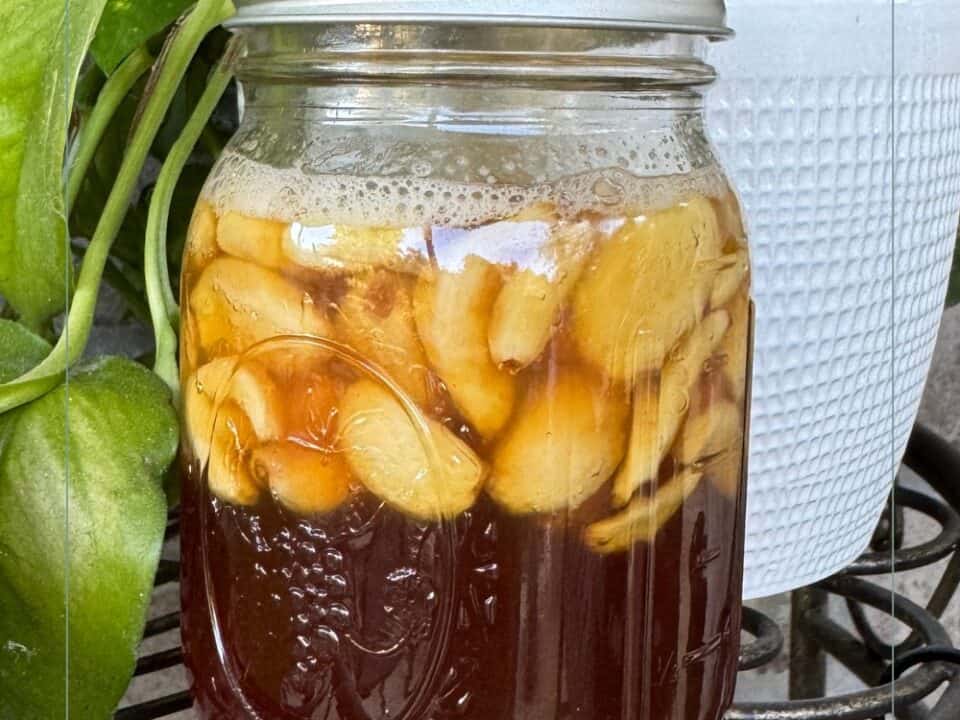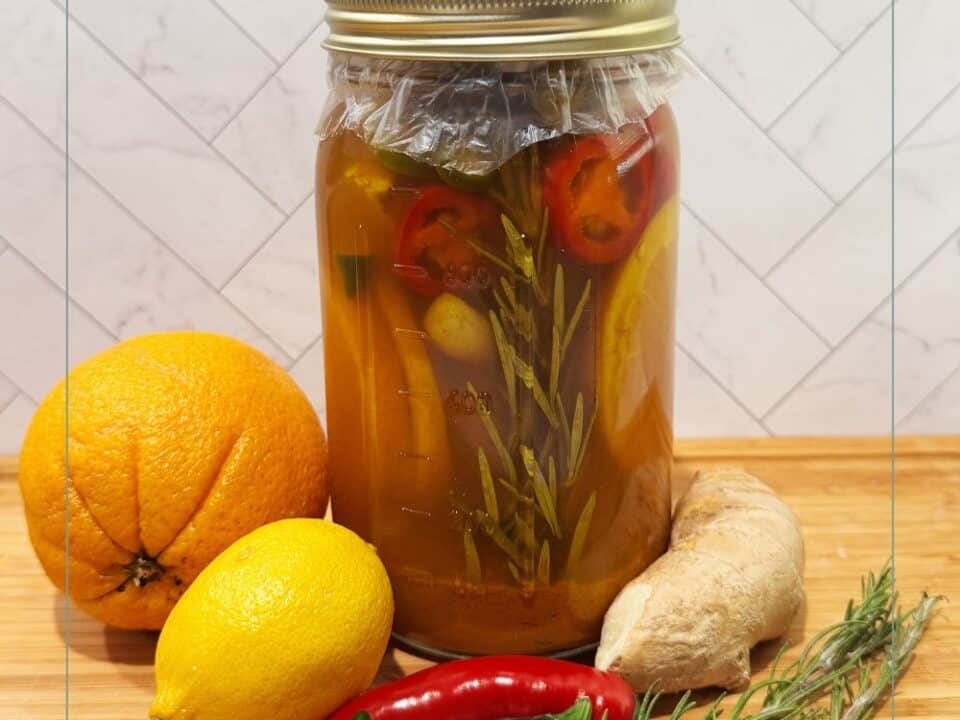Top 10 Spices Every Home Apothecary Should Have
If you are building a simple home apothecary, the best place to start is not with rare ingredients or complicated recipes. It starts with the spices you probably already cook with. Spices have been used for centuries to support wellness, soothe the body, and add warmth to seasonal remedies.
These ten are easy to find, simple to store, and incredibly versatile, and they give you everything you need to begin crafting teas, tinctures, simmer pots, and homemade cold season helpers right in your own kitchen.

Before we get into the list, it is worth remembering that everyday spices are just as important as the herbs you grow for winter immunity. You do not have to harvest everything from your own garden to build a useful home apothecary. Many of the most trusted remedies in traditional kitchens started as simple spices pulled from a pantry shelf.
Ginger
Ginger is one of the most versatile spices you can keep on hand. It supports digestion, helps calm nausea, and has natural warming qualities that help stimulate circulation. Ginger tea is a classic for a reason.
You can use dried ginger, powdered ginger, or fresh slices, depending on your recipe. It blends well with cinnamon, cloves, and honey, and it belongs in any home apothecary focused on simple, everyday remedies – like my homemade fire cider.
Star Anise
Star anise has a sweet, licorice-like flavor and one of the most visually striking shapes of any spice. It is often used to support respiratory health, especially in winter. It is rich in shikimic acid, which is one of the compounds used in antiviral medications.
Adding one or two stars to a pot of tea gives the drink a deeper, warmer flavor and may help soothe the chest or sinuses. It is also wonderful in simmer pots and herbal syrups.
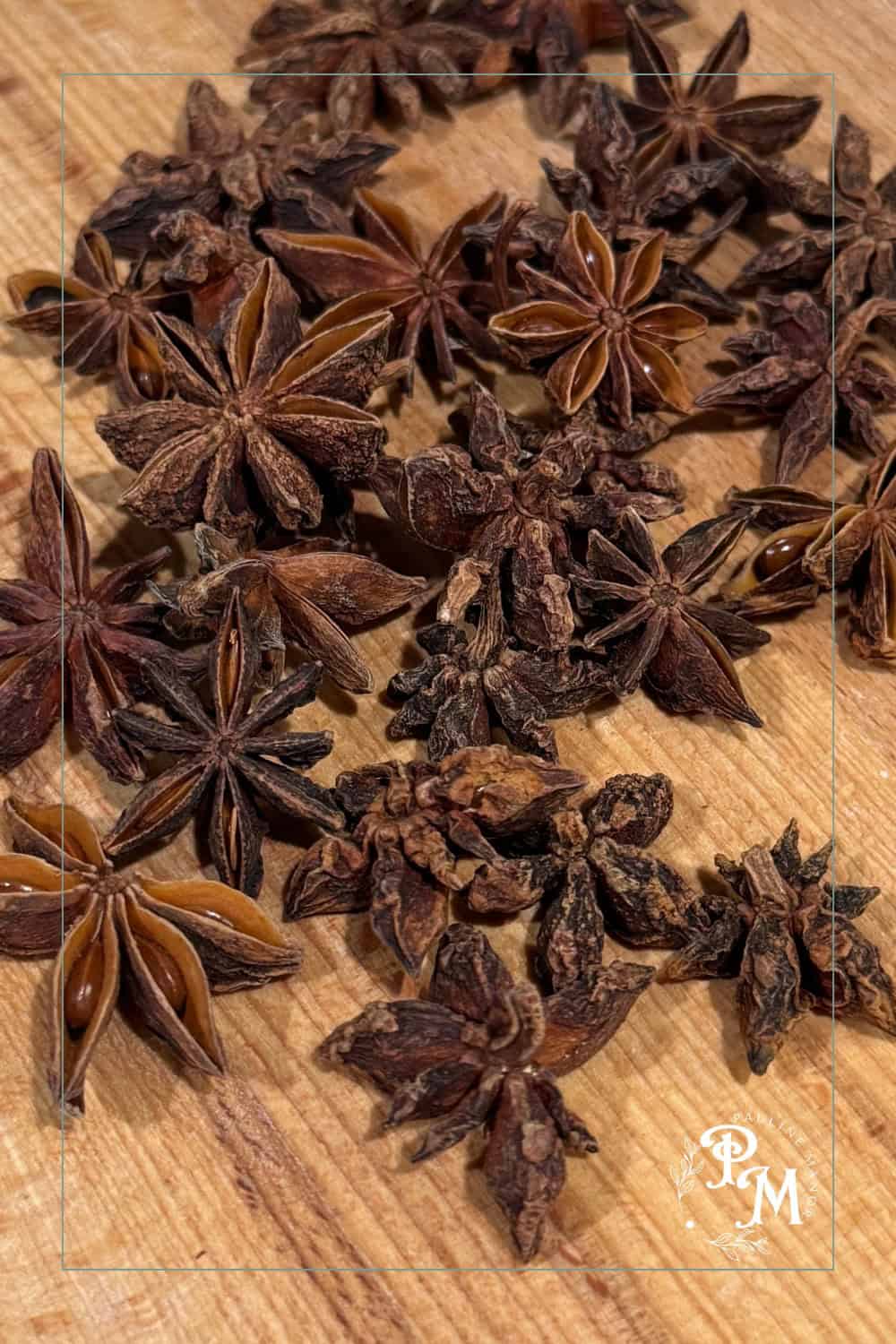
Turmeric
Turmeric has been used in traditional medicine for generations because of its natural anti-inflammatory properties. The active compound, curcumin, is known for helping soothe joint stiffness and overall inflammation.
Turmeric works well in broth, golden milk, smoothies, and homemade seasoning blends. It pairs beautifully with black pepper, which helps the body absorb curcumin more effectively. Even a small amount added to daily meals supports wellness over time.
Black Pepper
Black pepper may seem too ordinary to include, but it deserves a spot because of how well it supports other spices. Piperine, which gives pepper its heat, greatly increases the absorption of beneficial compounds in turmeric and other herbs.
Pepper is also stimulating and warming, which makes it a quiet powerhouse in cold season blends. You can add it to broths, teas, and tonics without overpowering the flavor.
Cinnamon
Cinnamon is one of the most recognizable spices, and it also happens to be one of the most useful. It contains natural warming properties that help support circulation and ease seasonal sluggishness. Many people use cinnamon in teas or tonics when they feel run down because it has gentle antimicrobial qualities.
The scent alone is comforting, which makes cinnamon perfect for simmer pots and seasonal rituals like a cinnamon broom. It is also one of the oldest spices used in home remedies, so it blends tradition with practicality in a way that fits perfectly inside any modern home apothecary.

Nutmeg
Nutmeg is a gentle nervous system supporter, often used to help with restlessness or trouble unwinding. A small pinch in warm milk or tea can create a calming effect at night. It also helps with digestion when combined with cinnamon or cloves.
The key is moderation. Nutmeg is potent, so a tiny amount goes a long way. Keeping whole nutmeg in your apothecary gives you fresher flavor and longer shelf life.
Cardamom
Cardamom is warming, aromatic, and soothing to the digestive system. It helps ease bloating and supports healthy digestion after heavy meals. The flavor is sweet and floral, which makes it a nice addition to teas and chai blends.
Cardamom works beautifully with cinnamon, cloves, and ginger, making it one of the best spices for both comfort and flavor. It is also lovely in seasonal baking that doubles as kitchen medicine.
Cloves
Cloves also have strong antibacterial properties, which make them a helpful spice during cold and flu season. They can be added to teas, simmered on the stove with citrus, or ground and blended into warming spice mixes for digestive support. A small jar goes a long way.
Cloves are tiny, but they pack a punch. They are known for their natural numbing effect, which is why clove oil has been used traditionally to ease tooth and gum discomfort.
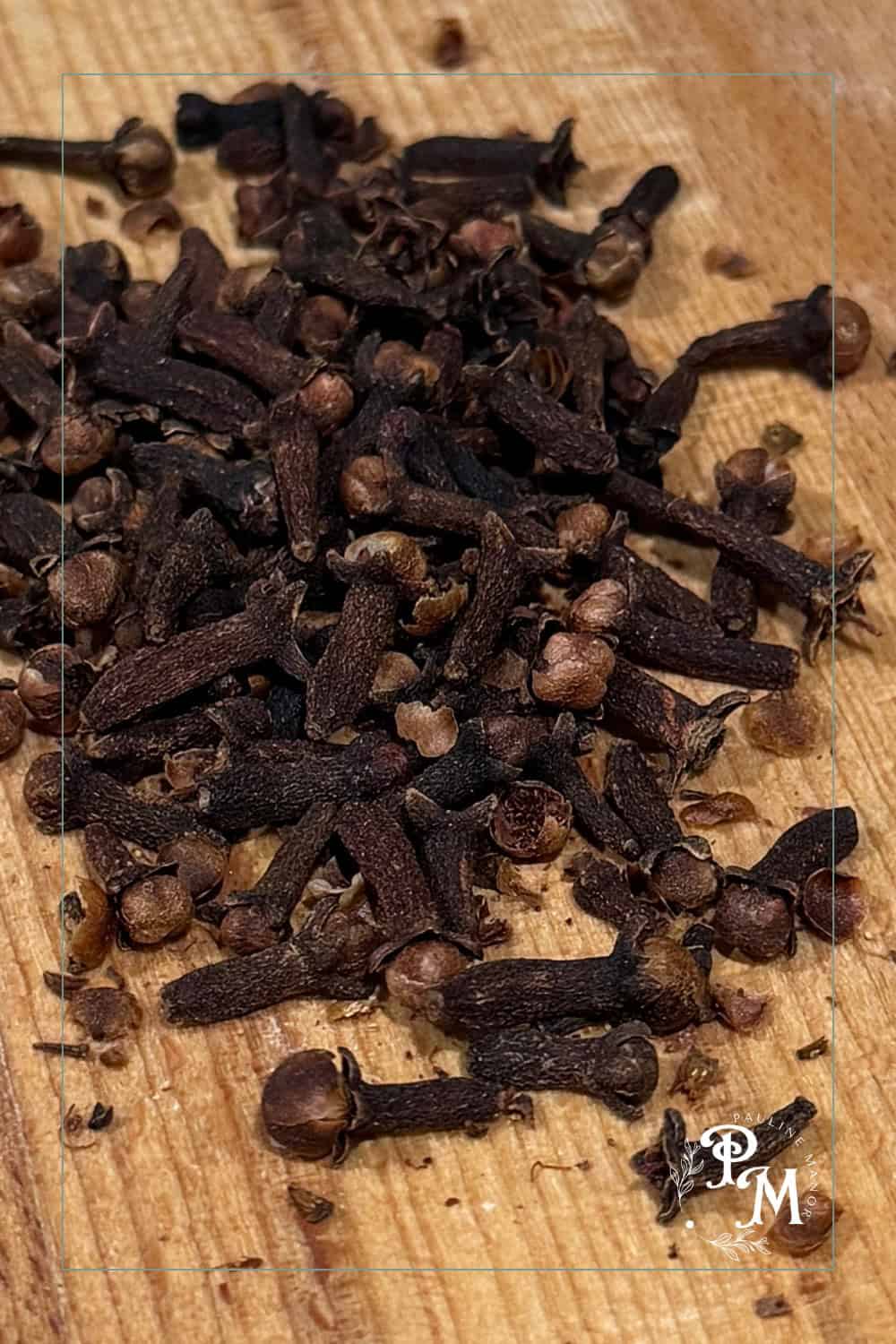
Fennel Seed
Fennel seed is a gentle digestive spice used for centuries to ease bloating, gas, and discomfort after eating. It has a light, sweet flavor that works well in tea. Many people brew fennel seed tea in the evenings because it soothes the stomach without feeling heavy.
It is also helpful for calming the system during times of stress because of its mild, grounding aroma.
Bay Leaf
Bay leaves are often overlooked, but they add depth and structure to soups and broths that support overall wellness. They have natural antibacterial qualities and help calm the digestive system.
Bay leaf tea has been used traditionally to support respiratory health and ease congestion. One or two leaves added to a simmering pot of soup brings both flavor and subtle herbal benefits to the meal.
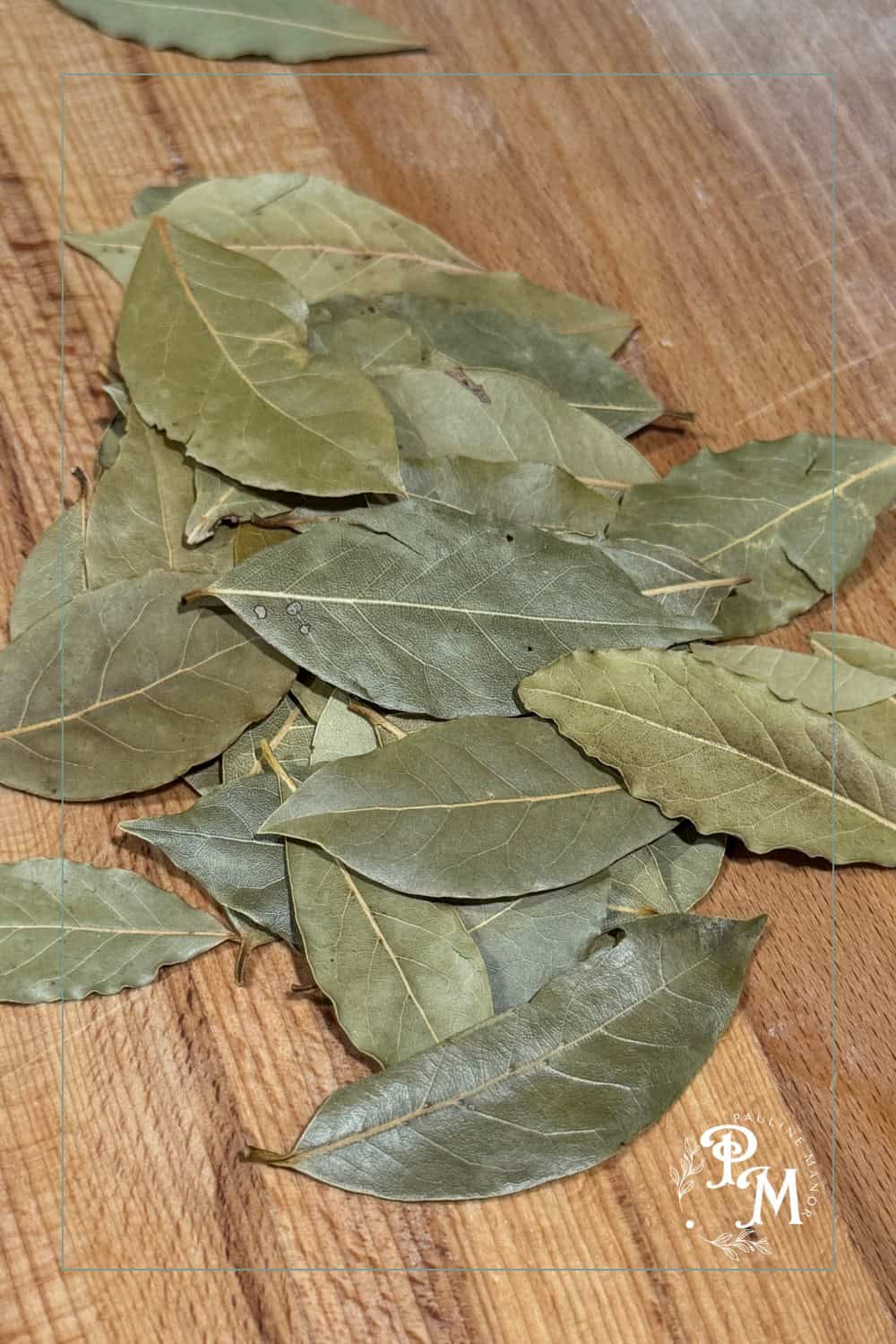
Bringing It All Together
A home apothecary does not need to be complicated. These ten spices are easy to find, affordable to keep on hand, and powerful enough to handle most everyday needs. They allow you to create teas for cold & flu season, tonics for digestion, and simmer pots that make your whole home feel warm and protected. They also build a foundation that can grow with you as you learn more about herbal care.
When you begin with simple ingredients that support both wellness and comfort, you create a home apothecary that feels like an extension of your kitchen. It becomes part of the rhythm of slow living and part of the story you build inside your home.

